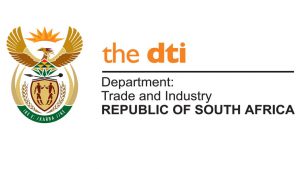The Department of Trade and Industry (DTI) has launched the Export Barrier Monitoring Mechanism (EBMM) in order to increase the ease of doing business in the country’s export market. The department says the EBMM is a single channel for companies to report and receive assistance in resolving export barriers.
DTI further notes that COVID-19 has exacerbated some of the export challenges the market continues to grapple with.
Companies reporting through EBMM will receive dedicated government support, and a resolution strategy for each of their reported barriers.
Barriers in markets
Deputy Director-General at DTI, Lerato Mataboge says the EBMM is open to receive barriers encountered in all markets, but it will have a particular focus on easing trade with other African countries.
Director for International Operations at DTI, Christopher Woods says the department’s response to reported barriers has been set against tight deadlines. He says companies also have the option to escalate their issues if they are not happy with the agents assigned to their cases.
“So, you can be assured that within 24 hours of reporting you we’ll give you an acknowledgment to make sure that we’ve registered your barrier on our system. Within three days you’ll be contacted by the official that’s been assigned to your barrier and we’ll start a conversation about gathering information on the barrier, confirming any outstanding details, and really explain the process from there onwards. Within two weeks, the official will contact you with what we’re calling a resolution strategy.”
COVID-19
The DTI notes that there have been measures taken at the SADC level to mitigate export challenges resulting from COVID-19.
Chief Director for African Trade Investment John Rocha says a number of challenges remain in immigration and border security, as well as border systems and customs clearance.
“While truck drivers are free to move to one area that is being negatively affected, it relates to technicians who need to cross our borders to do routine maintenance and repair work and also commissioning of vital equipment. This is having an effect on some of our companies that are operating across our borders as well. There is thus a need to try and ensure that these technicians are able to go and do this work, obviously while still obeying and complying with the COVID-19 measures.”






